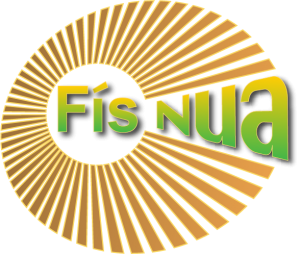(Based on a letter published in the Irish Times on Dec 15th 2011)
We once had such faith in our genius. As children, the future we saw was lasting, prosperous, and happy. We would live in a rational society, where technological breakthroughs lead to increases in productivity, which directly translated into better quality of life for humankind. What could go wrong? We were smart; man had gone to the moon, and we brushed our teeth with stripey toothpaste.
Instead, we have grown up into a world swathed in layers of debt and bureaucracy. We find that the technology that we have absorbs us, and isolates us from one another. While many of us work excessively long hours – running just to stand still, others are struggling between social security payments, seeking to regain a lost sense of self in new employment. What we read in the newspapers worries us, when we catch our reflection in the television, it is set against a backdrop of national debt, environmental degradation, and global struggles for diminishing resources.
That is the reality in which we find ourselves. We are together in this, but each of us is isolated and disempowered. Community and local economies are a core concern of Fís Nua. We believe that for our society to regain its health once more, people need to connect and work together at a local level. This action can take many forms, but the spirit of it is best encapsulated by the global transition town movement, whose idea is to build resilience into the economy at a local level, to protect against economic shocks, the effects of climate change, and dependence on imported fossil fuels. We believe that Ireland needs to effect such a transition as a nation.
The fiscal operating system that we run our society on is flawed. The equation is simple: money, as it exists today, is debt and because all debts bear interest, more value has to continually be created in the economy. This is called growth. Because growth is ultimately fuelled by extracting wealth from the environment, the whole idea needs to be re-examined.
Currently, primary wealth-generating activities, such as mining, timber, and fossil fuel extraction withdraw from nature’s bank account, but do not put anything back. Of course this will stop one day, when there is nothing left – that’s what ‘unsustainable’ means. Strangely, natural wealth does not figure in modern accounting and economists generally see the economy as being separate from the environment.
We see the economy as a subset of the environment. This viewpoint is referred to as ‘ecological economics’. So, we are rapidly depleting the ‘natural capital’ bestowed on us by nature. Oil, in particular, has enabled the fantastic economic and social developments of the last century, by providing a very cheap source of energy, but ultimately one which is going to vanish. So we need to begin to learn how to run a modern society where oil is increasingly expensive and ultimately unobtainable, as the world’s oil producing capacity falls away from its peak.
This idea of ‘peak oil’ is of transcending importance, and here’s why: the term describes the bell shaped graph of global oil extraction, which rises to a peak and then slopes down again. Space does not allow for a more thorough exposition of the science here, but many geologists think that we are in the peak phase now.
As the world’s capacity to produce oil falls, we will see more expensive and environmentally destructive methods of energy extraction such as hydraulic fracturing (fracking), become economically viable. The recent Green Party / Fianna Fáil coalition government issued invitations to tender for fracking licences in March 2010. In spite of serious environmental and public health concerns, it now looks set to go ahead. Fracking is a highly destructive form of extraction that involves injecting high pressure water, sand, and chemicals into the bedrock to extract natural gas. Concerns about water contamination and even earthquakes associated with fracking are so great that fracking operations have been suspended in some other jurisdictions, such as in Northern Ireland, in parts of Canada, and the practice has been completely banned in France.
Fracking, and tar sands extraction are examples of the increasingly desperate measures we are taking to get our energy. They are not solutions. Eventually, fossil fuels will be gone. Again, this exemplifies unsustainability.
Fís Nua wants to change the current of public discourse, which is tending toward an air of quiet resignation. As a nation, we have lost faith in our genius. We need to be able to imagine that future again. Simply put, the ideas that got us this far are no longer working, but we have become convinced that we have no options. This is so wrong. There are different ideas. There is a rich seam of thought, study, and experiment laid down over many years that has given rise to an astonishing array of solutions for our current crisis.
We are worried, weary, and indebted, but this low vibrational level is not consonant with the qualities of courage, creative flair and joy, which fit a free and happy people.
It’s time to get our sparkle back.
